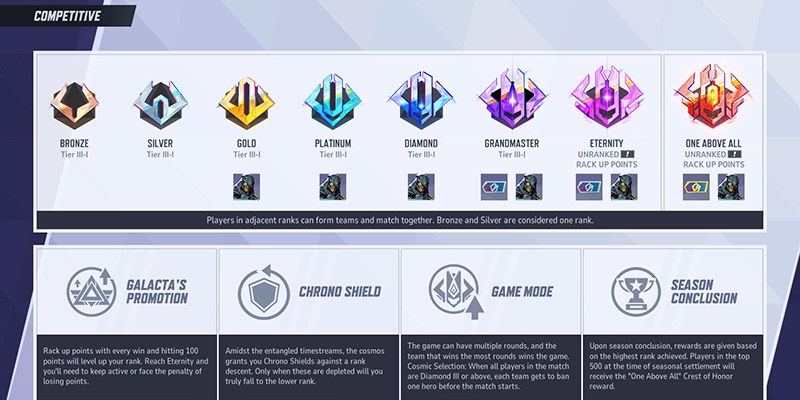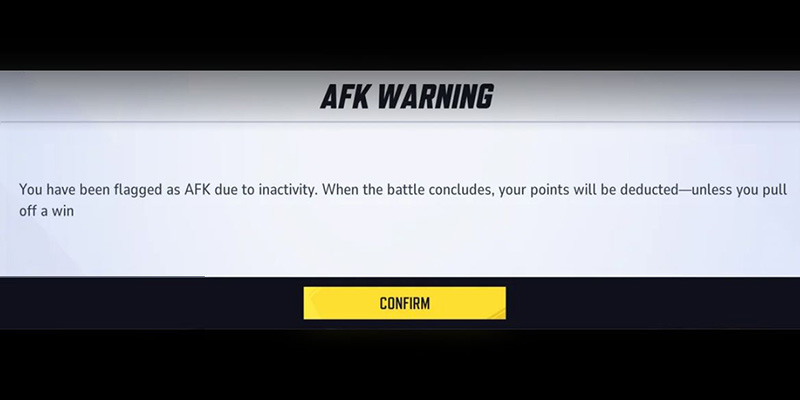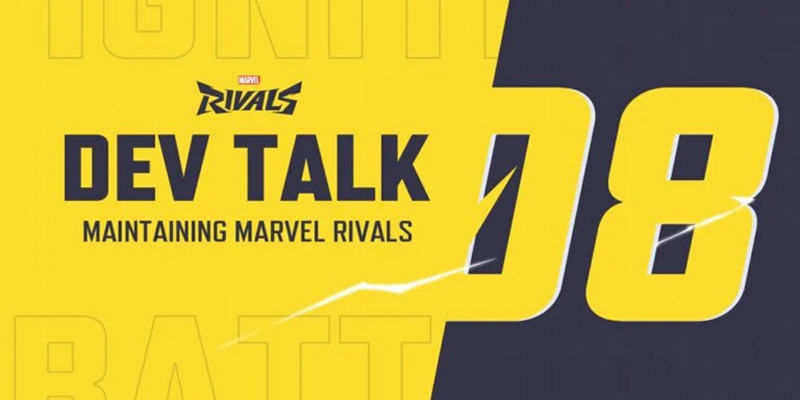Ranked play in Marvel Rivals is where competition gets real. Every victory feels earned, every loss stings, and every teammate matters. When someone leaves mid-match or goes AFK, it ruins the game for everyone else. Marvel Rivals has built a penalty system to deal with this problem, and it's gotten stricter over time.
This guide breaks down how the penalty system works, from initial warnings to season-long bans. You'll learn what happens when you leave, how it affects your Rank Rating, and what triggers the automated punishment system. We'll also cover the player report system and share tips for avoiding penalties in the first place.

Marvel Rivals is built around 6v6 team coordination. Losing one player doesn't just hurt your chances of winning; it often guarantees a loss for the remaining five players. The penalty system exists to protect the competitive experience and discourage the kind of behavior that makes ranked frustrating for everyone.
Understanding Leaver & AFK Penalties
Life happens. Internet cuts out, games crash, emergencies come up. Marvel Rivals' penalty system doesn't care why you left, just that you did.
The First Warning Shot
Try to leave a ranked match and you'll get a warning message: "Leaving this match will flag you as a deserter and may result in penalties. Do you wish to continue?" This is your last chance to reconsider.
Even your first-ever ranked leave will flag your account as a deserter. While the immediate penalty might be light, this violation gets recorded and affects how severely you're punished for future leaves.
AFK Detection
Going AFK triggers the same penalties as manually leaving. The game tracks several things: character movement, ability usage, objective interaction, and whether you're stuck in spawn. After about 60 seconds of complete inactivity, you'll get an on-screen warning. Stay inactive and you'll be automatically kicked from the match.
That 60-second window is surprisingly short. Even brief real-life interruptions can trigger an AFK removal if they happen at the wrong moment.

Escalation Begins
Once you move past warnings, real penalties start. The first actual ban is usually 5 minutes from all matchmaking queues. Second offense within a certain timeframe might be 15 minutes, third could be 30 minutes. Repeat offenders can face 3-hour bans, 24-hour bans, or worse.
These timescales escalate quickly, and the system has a long memory for tracking your violation history.
Intentional vs. Accidental
The penalty system treats all match exits the same way. Rage quit because your team is losing? Same penalty as someone whose internet died. Game crashed during a teamfight? Same penalty as someone who quit on purpose.
This "strict liability" approach feels unfair when you're punished for genuine technical problems, but it prevents people from faking disconnections to avoid penalties.
The "Next Login" Surprise
Recent updates changed when penalties take effect. Instead of starting your ban timer immediately, some penalties only activate when you next log into the game. Leave a match, quit the game for the day, and your 15-minute ban will be waiting for you tomorrow when you try to play.
This makes penalties feel more punishing because they interrupt your next gaming session instead of running while you're offline anyway.
Penalty Breakdown
Here's how the current penalty system reportedly works. It operates on a rolling 20-game window, meaning your recent match completion history determines penalty severity. Good behavior can eventually push older violations out of this window.
| Number of Ranked Games Left (within last 20 played) | Matchmaking Ban Duration | Additional Notes |
|---|---|---|
| 1 game left | 15-minute penalty | Standard Rank Rating (RR) loss likely |
| 2 games left | 2-hour penalty | Increased RR loss possible, closer to next tier |
| 3 games left | 8-hour penalty | Significant disruption to play |
| 4 games left | 20-hour penalty | Very close to season ban threshold |
| 5 games left | Entire Season Ban | Loss of seasonal rewards |
| 10 or more games left | Season Ban (No Appeal) | Severe; account effectively out of ranked for season |
The threshold for a season ban after just five leaves shows how seriously Marvel Rivals takes match completion. This system prioritizes the experience of players who stay in their games over accommodating frequent leavers.
Rank Rating Impact
Leaving doesn't just get you banned from matchmaking. It also hits your Rank Rating hard.
When you leave a ranked match, you're treated as having lost that game. The community debates whether leavers lose extra RR on top of a normal loss, but the official stance isn't clear. Some players report losing RR equivalent to one or two normal losses when they leave.
What's certain is that your teammates usually lose the match (and their RR) when you abandon them. This creates a 5v6 situation that's almost impossible to win, which is why the community strongly supports harsh penalties for leavers.
Marvel Rivals has a "Chrono Shield" system that can protect players from RR loss or demotion after certain losses. These shields might help if your team loses because someone else left, but they won't protect the leaver from their own penalties.
The game's executive producer has confirmed that Chrono Shield Cards aren't designed to make rage-quitting worse, so they work independently of the leaver penalty system.
Season Bans
Season bans are the nuclear option of Marvel Rivals' penalty system. Leave too many ranked games and you're locked out for the entire competitive season.
According to reported penalty structures, leaving just five ranked games within your last 20 matches can trigger a full season ban. Hit 10 or more leaves and you face a season ban with no appeal process.
A season ban means you can't play ranked for months. You'll miss out on all seasonal rewards you might have earned, and your final rank for that season gets voided. There's no way to rebuild your reputation or work your way back into ranked until the next season starts.
The "no appeal" threshold at 10 leaves shows the developers' zero-tolerance stance toward habitual leavers. At that point, they consider the pattern of behavior indefensible regardless of individual circumstances.
Player Report System
Marvel Rivals gives players tools to report others for various infractions, including leaving matches, toxic behavior, and cheating.
How to Report a Player
You can report players during matches or from the post-game screen. Press Tab (or console equivalent) to bring up the scoreboard, right-click on a player's name, and select report. Options include "abandoning the match," "Negative Behavior," "Smurfing," verbal abuse, and other unsportsmanlike conduct.
Report Thresholds and Actions
The system uses automation to analyze reported accounts for behavior patterns. Validated reports for leaving contribute to that player's progression through the penalty tiers we discussed earlier.
For other offenses like toxic chat or cheating, successful reports might result in temporary communication restrictions, matchmaking bans, or in severe cases, account suspension. You'll usually get an in-game message confirming when action has been taken against someone you reported.
Some players feel the threshold for action on reports (especially for toxicity rather than leaving) is quite high. There's a perception that the "player has been restricted" notifications often coincide with standard automated leaver penalties rather than specific punishment for reported toxic behavior.
The addition of specific report categories like "Smurfing" shows developers are trying to address a wider range of disruptive behaviors based on community feedback.
Developer Updates
NetEase communicates about fair play and penalties through patch notes, developer diaries, and direct staff interactions, though information sometimes comes from multiple sources.
Around May 2025, reports surfaced about NetEase implementing a "stricter ban system." A key change was making some penalties only activate on the player's next login rather than starting immediately. This makes penalties feel more punishing because they interrupt your next gaming session.
Content creator "Meta Fashion" reported detailed penalty structures around May 20, 2025, outlining the escalating punishments within a rolling 20-game window. Even when information comes from community figures rather than official patch notes, it often reflects real system changes.

Marvel Rivals' executive producer Danny Koo has publicly stated, "I think there should be [a] harsher penalty for throwers for sure." This signals internal understanding that disruptive behavior needs strong countermeasures. Koo also discussed reasons players might intentionally throw matches, including frustration over banned hero picks or blaming teammates.
A developer diary from April 2025 emphasized the team's commitment to monitoring community feedback: "Balancing the game and rank adjustments is a challenging endeavor...we remain humble and attentive, striving to address issues promptly." While this was about hero balance, the responsiveness philosophy applies to penalty systems too.
Information about penalty changes can be fragmented across different sources, requiring players to follow multiple channels to stay informed. There's tension between community demands for immediate harsh punishments and developers' need to consider players affected by genuine technical issues.
Avoiding Penalties
Most penalties can be avoided with preparation and mindful play. Nobody wants to face matchmaking bans or RR loss because of preventable issues.
Technical Preparations
Before queuing for ranked, make sure your setup is solid. Use a wired internet connection instead of Wi-Fi when possible for better stability. Keep your gaming hardware running smoothly with updated drivers and sufficient system resources. Close unnecessary background apps to free up bandwidth and processing power.
Keep Marvel Rivals updated to the latest version since patches often include stability improvements.
Pre-Match Checklist
A little planning before clicking "queue" makes a big difference:
- Time Commitment: Only queue when you have clear, uninterrupted time for a full match. Ranked games can run longer than expected.
- Device Power: Make sure laptops, controllers, and essential peripherals are charged or plugged in.
- Minimize Interruptions: Create an environment where real-life distractions are unlikely during the match.
During the Match
Once you're in game, stay engaged:
- Stay Active: The AFK detection kicks in after about 60 seconds of inactivity. Avoid stepping away even briefly.
- Communicate Issues: If technical problems arise, quickly inform teammates via chat. While this won't prevent automated penalties, it's good sportsmanship.
- Resist Rage Quitting: Competitive games get frustrating. Finish the current match and take a break between games rather than leaving and guaranteeing penalties.
- Use wired internet connection
- Update game client regularly
- Check device battery/power
- Plan uninterrupted gaming time
- Stay engaged throughout matches
- Queuing with unstable internet
- Starting matches when short on time
- Going AFK for any reason
- Rage quitting when frustrated
- Ignoring technical warnings
Rebuilding Reputation
If you do rack up penalties due to technical issues or poor decisions, the system offers a path to redemption. The rolling 20-game window means consistently completing matches without violations will eventually push older offenses out of consideration.
Good behavior over time reduces penalty severity for any future isolated incidents. This gives players who address their issues a way to rebuild their standing with the system.
Final Tips
Understanding Marvel Rivals' penalty system is crucial for a successful ranked experience. These rules exist to create a stable, respectful environment where teamwork can flourish rather than just punishing offenders.
While disconnections and technical issues are unfortunate realities of online gaming, committing to responsible play, proper preparation, and seeing matches through benefits everyone. The system's goal is fostering a healthy competitive scene where matches are decided by strategy and skill rather than which team loses a player first.
Good luck in your ranked climb. Play fair, stay connected, and may your dedication pay off with the rank you deserve.
